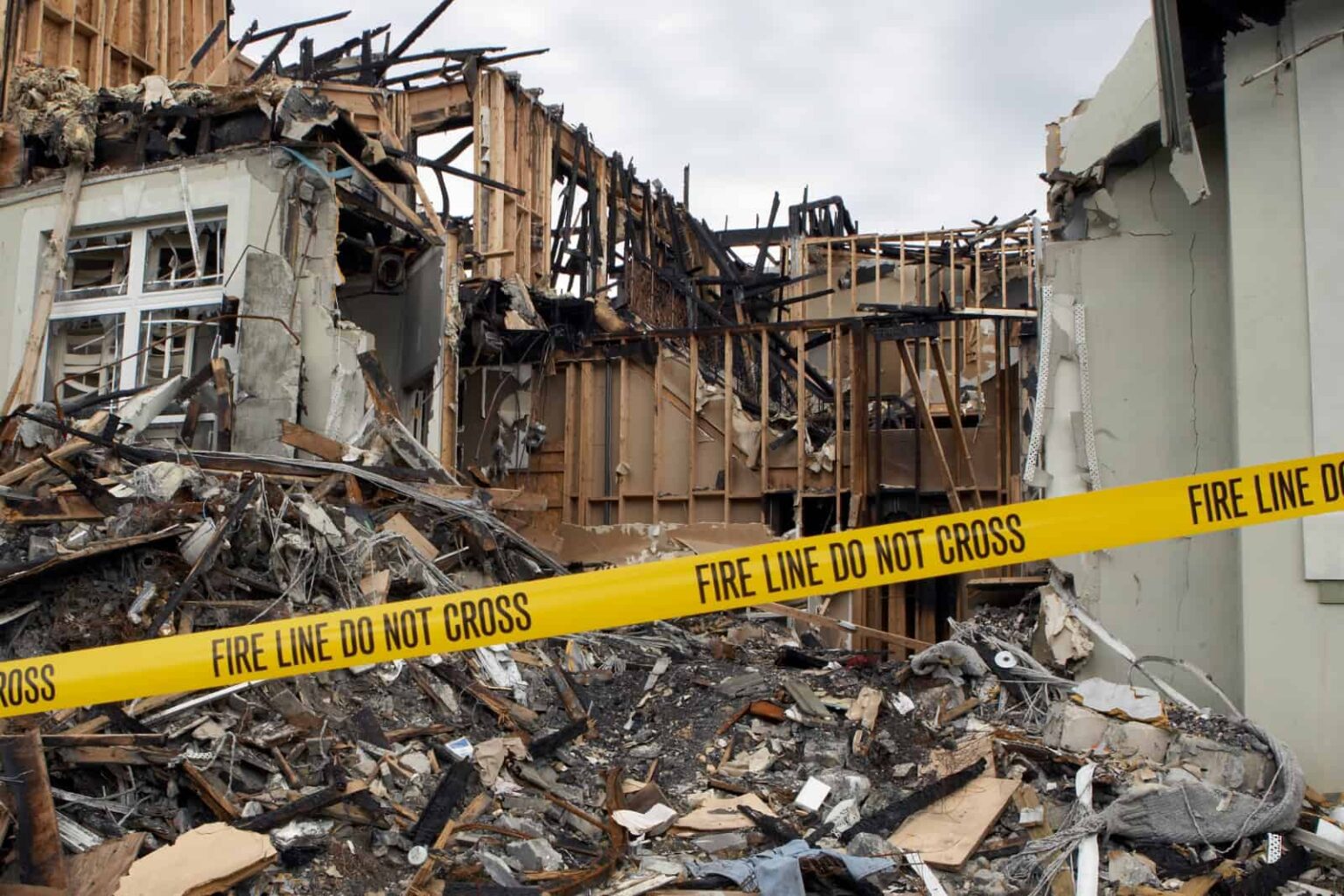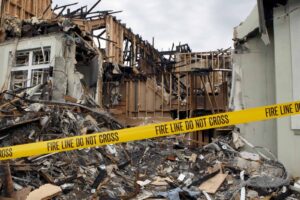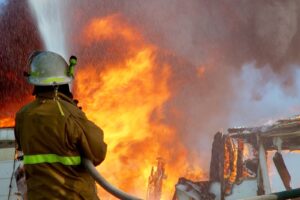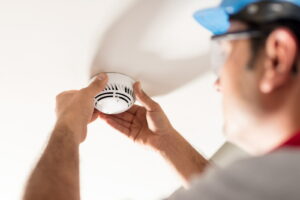A house fire can take a big toll physically, emotionally, and financially. Figuring out what to do after your house burns down can be a stressful process.
There are often safety risks in a home that has been impacted by a fire, so it’s important to use caution and follow instructions given by the fire department or other local authorities.
Use this “what to do after a house fire” checklist as a guide to be proactive and stay safe after a house fire.
6 Steps to Take Immediately After a Home Fire
- If it has not already been done, call 911 or your local fire department. It’s important to give your address and explain the situation. Let them know if there are any family members or pets still inside the house.
- Address any burns or injuries. Use water to cool burns and cover them up with bandages until you’re able to seek medical attention.
- Do not attempt to re-enter the house until authorities say it’s safe to do so. Even if the fire is out, there are hazards that could pose a safety risk like smoke, carbon monoxide, or building damage.
- Contact friends and family to let them know you’re safe.
- Remember to stay calm and be patient. After a house fire, you may feel overwhelmed. It’s important to listen to fire authorities and other professionals and follow their instructions to stay safe.
- Contact your insurance provider. They can provide some next steps regarding inventory, repairs, and financial assistance. You may need to take photos of the damage after a fire before making any repairs for insurance claims.
Caring for Yourself & Loved Ones After a Fire
- House fires can be a traumatic experience for anyone involved. Make sure you and your loved ones are managing stress and taking care of their mental health.
- You might want to have children stay with a friend or family member while you deal with the initial recovery process after a house fire. Do not bring children to the initial inspection of your home.
- Keep a close eye on pets. If you have any concerns about their health, bring them to the vet.
- Do not consume any food that has been exposed to smoke, heat, or soot.
Checking Your Home After a Fire
- Always follow instructions given by fire authorities. Do not enter your home until you have been told it is safe to do so. A building inspector can assess the damage and provide more information.
- Check household items for damage. Things like beverages and medicine can become unsafe after fire exposure and may need to be discarded.
- If any chemicals have spilled, clean them up carefully using rubber gloves and rags. Always follow guidelines provided by local authorities when dealing with household chemicals.
- Check the exterior of your home for structural damage before you enter. Keep an eye out for loose power lines, damaged gas lines, foundation cracks, or other concerns. If you notice any structural damage, do not enter the house and contact a building inspector or contractor.
- If you detect the smell of gas, do not enter your home. Leave the area right away and contact the fire department.
- Check stairways for damage before heading upstairs or downstairs.
- Take a look at ceilings and floors. Water damage, sagging, or cracks could indicate damage and you should stay away from the area.
- If weather conditions are appropriate, open doors and windows for airflow. This will help dry out your home.
- Before using appliances, disconnect them and check for water damage.
- If you notice any potential electrical issues like broken wires, turn off the electricity and contact an electrician. Do not attempt to fix electrical problems after a house fire on your own.
- Keep an eye out for sewage line damage. Reach out to a plumber and do not use sinks, showers, or toilets in the meantime.
It can be difficult to figure out what to do when your house burns down. Between the financial stress, safety concerns, and emotional toll, it’s normal to feel overwhelmed. If you have any questions or concerns, contact local authorities or your fire department to get some advice. It’s always better to be safe than sorry.







